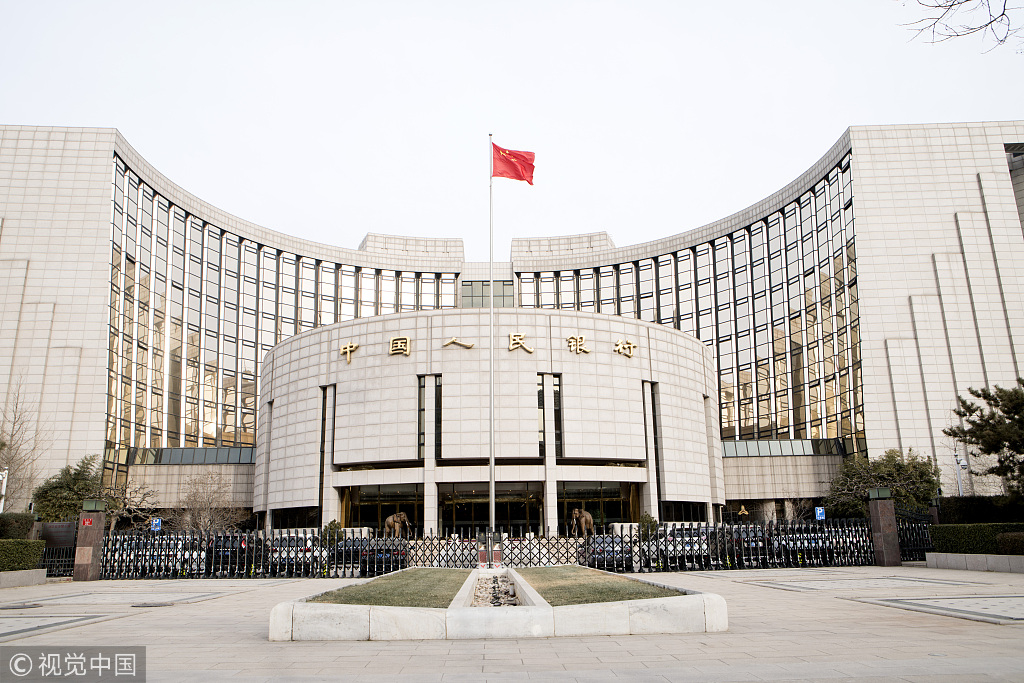
Opinion
15:22, 21-Jan-2019
Opinion: Should China's 6.6 pct growth be a major concern?
Updated
18:40, 21-Jan-2019
CGTN's Xu Sicong

Editor's note: This article is based on an interview with Qu Qiang, assistant director and research fellow at the International Monetary Institute of the Renmin University of China. The article reflects the expert's views, and not necessarily those of CGTN.
China's economy grew 6.6 percent in 2018, according to official data released on Monday. The slowdown of the country's economy, which witnessed a growth rate of around 10 percent from 2003 to 2011, has been the focus of attention of watchers inside and outside the country.
Ahead of the data release, Reuters noted that annual GDP growth of 6.6 percent would be the slowest since 1990 for China.
"6.6 percent as the slowest Chinese economic growth in 28 years should not be a cause for concern," Qu Qiang, assistant director and research fellow at the International Monetary Institute of the Renmin University of China, told CGTN.
Qu expressed the belief that people should not read too much into the figure, arguing that as the country's GDP keeps expanding, it would be increasingly hard to expect continued rapid growth and with China's GDP standing at nine trillion yuan, a 6.6-percent increase is already impressive.

A Chinese flag flies in front of the People's Bank of China headquarters in Beijing, China, January 7, 2019. /VCG Photo
A Chinese flag flies in front of the People's Bank of China headquarters in Beijing, China, January 7, 2019. /VCG Photo
The U.S.-China trade war has dominated news headlines in the past year. When asked to what extent China's economic cooling is the result of the trade dispute with the U.S., Qu said China's slower growth rate has more to do with the structural issues of its own economy than it does with external factors, such as trade tensions, adding that the impact of the trade war on the Chinese economy has yet to manifest.
Qu explained that those structural issues refer to China's industrial overcapacity and weakening consumer demands. He noted that China's investment in infrastructure and household consumption thrived in previous years when the economy experienced faster growth, which in turn helped lubricate the wheels of the Chinese economy. However, China's demand for infrastructure projects has gradually been cooling in recent years.
When it comes to how China should address these issues, Qu said that efforts should be made to increase investment and boost demand. He drew attention to the government policy of cutting taxes in order to increase people's disposable income and encourage consumption.
In terms of where investment should be channeled, he pointed to infrastructure in rural areas. He believes that China's rural population of 600 million, in a way, is a great "asset," as they represent the potential for growth.
The areas these people live in, which consist of half of the country, are usually burdened with the issue of poor infrastructure; therefore, there is still much work to be done there, he said. "Moreover, investment in infrastructure in rural areas would also help to boost employment."
However, China at the moment is also facing the urgent task of deleveraging. How to balance the need for deleveraging and infrastructure investment presents another big challenge. Thus, Qu said that China still needs to avoid excessive debt borrowing so as to keep financial risks in check. He stressed that China would not be able to solely rely on infrastructure investment for sustained economic growth; however, it is one way to address the downward pressure for the time being.
01:34

In order to keep the good momentum going for China's future development, there are many other things to do, most notably, "investing in technology, upgrading industrial structure and moving China up the value chain," according to Qu.
This view is shared by many experts in China, including John Gong, professor from China's University of International Business and Economics, who, during a TV interview with CGTN, said that China's high-tech sector, such as artificial intelligence and robotics, offers enormous opportunities for the country's future growth, which has so far received significant investment and witnessed a swarm of start-ups being set up.
(If you want to contribute and have specific expertise, please contact us at opinions@cgtn.com.)

SITEMAP
Copyright © 2018 CGTN. Beijing ICP prepared NO.16065310-3
Copyright © 2018 CGTN. Beijing ICP prepared NO.16065310-3